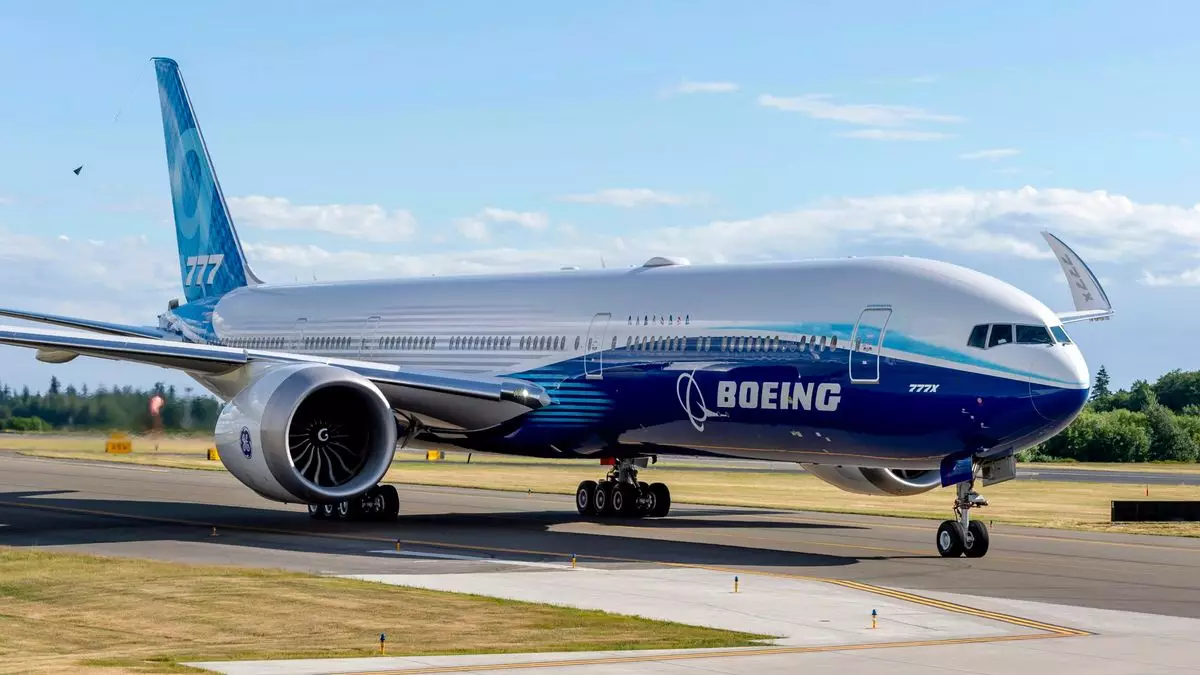In a significant ripple from labor unrest at Boeing, Spirit AeroSystems, a key supplier for the aerospace giant, has announced an impending furlough for approximately 700 of its workers. This will commence on October 28 and is expected to last for three weeks. The context of this decision stems from a massive strike involving around 33,000 Boeing machinists in the Pacific Northwest, which began on September 13. As critical production of Boeing 767s and 777s ceases, the consequences become apparent not only for Boeing but its extensive network of suppliers, underscoring the intricate relationship between these companies and the vulnerability of the industry to labor actions.
The ongoing strike has disrupted vital assembly lines and left Spirit AeroSystems with a surplus of parts it cannot deliver. This moment illustrates how labor disputes can create a domino effect within the industry. With Spirit’s production halted, the company now faces urgent decisions to cut costs to navigate the financial strain. Spirit’s response, which includes temporary furloughs, signals an immediate need to manage expenses as the company grapples with excess inventory that cannot be utilized due to Boeing’s own inability to continue its assembly processes. The decision has far-reaching implications, not only for Spirit workers but for the overall stability of the supply chain tied closely to Boeing’s operations.
Boeing’s pressing need for stability is further complicated by its ongoing acquisition of Spirit AeroSystems for $4.7 billion. This initiative aims to streamline operations and mitigate reliance on external suppliers. The acquisition, intended to tighten control over manufacturing and quality assurance, comes at a time when Boeing is facing significant scrutiny from the Federal Aviation Administration (FAA). As the FAA embarks on a three-month review of Boeing’s adherence to safety regulations—a review underscored by past incidents—the combination of labor unrest and regulatory examination raises questions about the future reliability and safety culture within Boeing’s operations.
The FAA’s decision to increase oversight of Boeing is particularly noteworthy, as it reveals underlying concerns surrounding safety processes that could be further exacerbated by labor issues. Reports from the Transportation Department’s inspector general indicate that the FAA has struggled to fulfill its mandate effectively, citing deficiencies in oversight that could impact how well Boeing and its suppliers meet engineering standards. The agency has yet to resolve numerous reports that allege undue pressure on safety inspectors at Boeing, leading to a beleaguered safety culture. As Boeing collaborates with the FAA to enhance transparency and safety, the looming labor strike exacerbates these challenges, highlighting how intertwined these factors are.
With Boeing signaling potential layoffs of approximately 17,000 employees in response to production delays, a comprehensive plan will be essential to navigate the turbulent waters ahead. The statements from the Biden administration, particularly from Acting Labor Secretary Julie Su, indicate a recognition of the strike’s impacts not just on Boeing but on the economy as a whole. This ongoing dialogue underscores how labor relations in a single corporation can affect broader economic conditions, especially in sectors as critical as aerospace.
Meanwhile, Spirit AeroSystems’ move to implement a hiring freeze and restrictions on overtime work exemplifies the need for companies within the aerospace supply chain to brace for more challenging times. The concurrent issues of workforce management, regulatory scrutiny, and public safety concerns highlight a period of significant upheaval for Boeing and its partners.
As the situation continues to unfold, the aerospace industry must grapple with immediate and long-term repercussions from labor disputes and regulatory reviews. For Boeing, the strike poses an acute challenge that could hinder its recovery and growth prospects. For Spirit AeroSystems, the need to manage inventory and workforce stability is urgent, illustrating the complexity of modern manufacturing—where a single issue can resonate throughout the entire supply chain. Ultimately, these interconnected challenges will require comprehensive solutions that encompass not just labor negotiations, but also a relentless focus on safety and operational integrity.


Leave a Reply